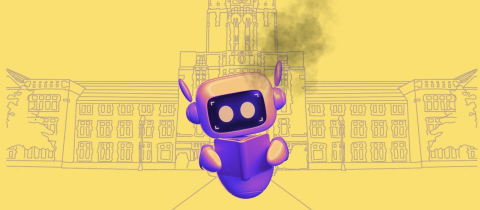After leaving the Walter Reed Medical Center where he was treated for COVID-19, Trump told the American public, “We have the best medicines in the world and they’re [sic] all happened very shortly.” If anything, Trump can be relied on as a living lesson plan on how not to think.
Advertisements have long embraced the appealing but faulty premise that if it’s new, it must be better. When the latest smartphone model is announced, it’s easy to skip its tech specifications and simply bask in the idea that its newness makes it desirable. Likewise, the latest dieting trend capitalizes on its novelty to recruit adherents, even when it’s an old principle (like low carb) simply repackaged for a younger generation. Supplements also benefit from the halo of unfamiliarity, leading to the successive popularity of glucosamine, omega-3s, and CBD.
As we keep tabs on new protection measures against the coronavirus, it’s important to keep in mind that this appeal to novelty can be a bad argument. New is not always better. UV robots and misting drones are showcased as powerful new tools against the coronavirus but, aside from very specific applications in decontaminating surfaces, they won’t protect us from the main mode of transmission of the virus: talking and coughing in each other’s faces. For that, very old-school and cheap measures are much better. There’s nothing cutting edge about keeping our distances and wearing a mask, but that doesn’t mean it’s not highly effective.
When new COVID-fighting treatments and protective technologies are developed, they can’t be accepted as effective simply because they’re new. They have to be tested and they have to make sense given what we know of the virus. After all, every idea we ever developed as a species but ultimately rejected was at one point a shiny new idea.







